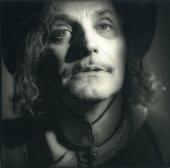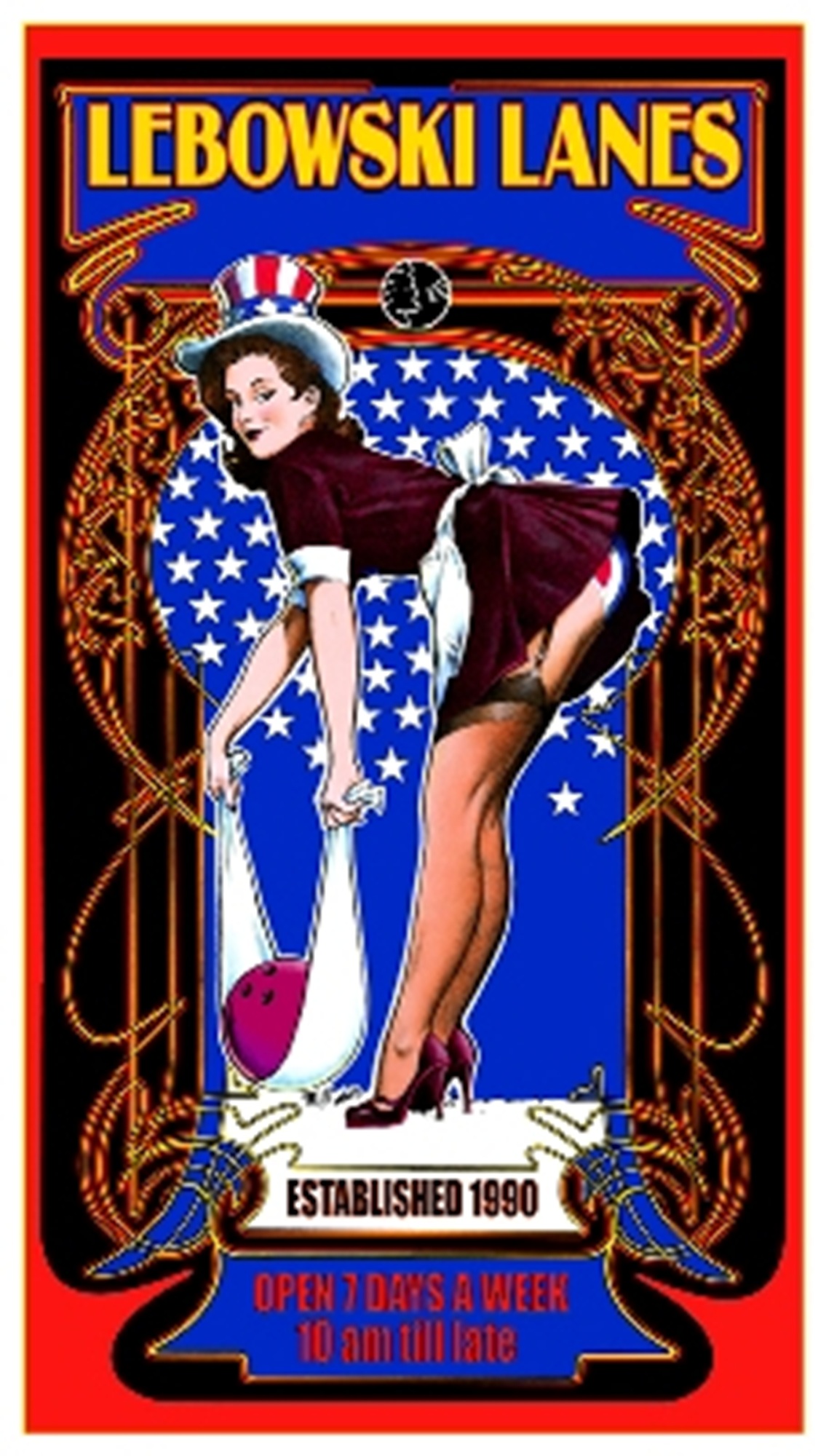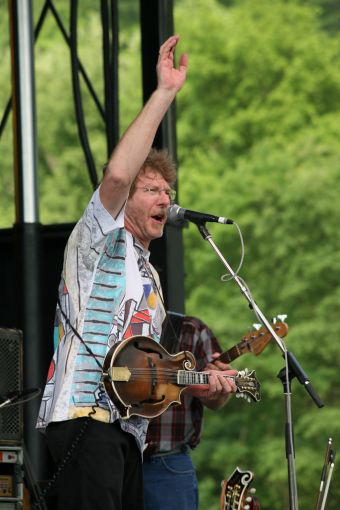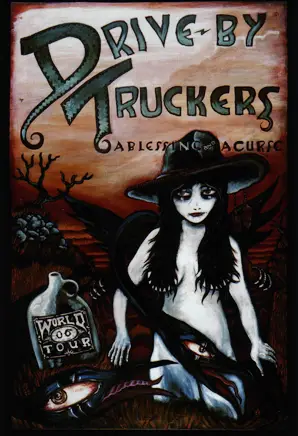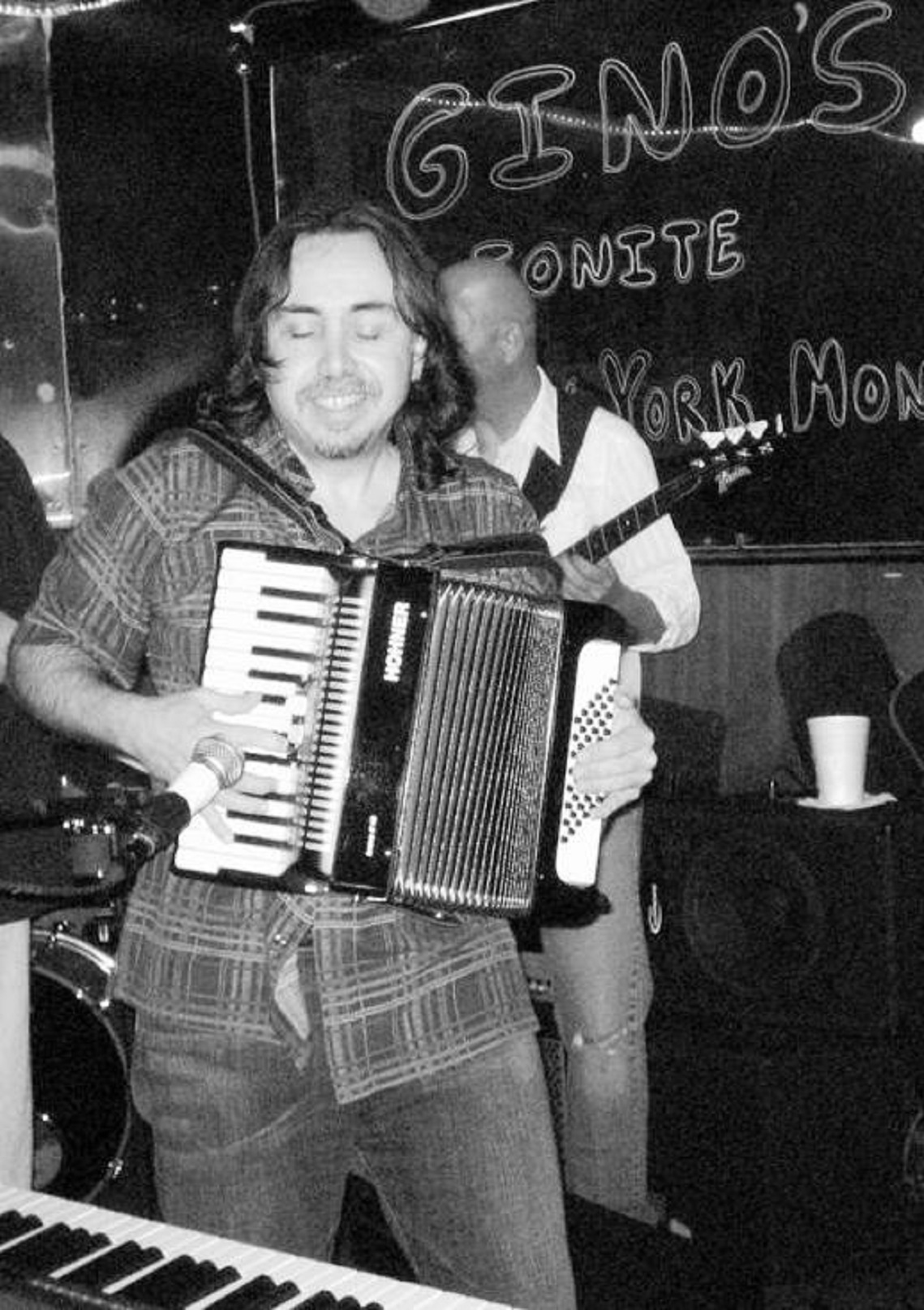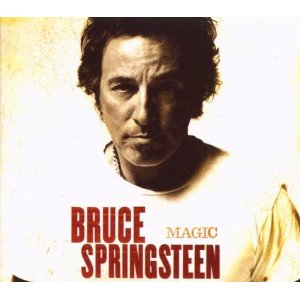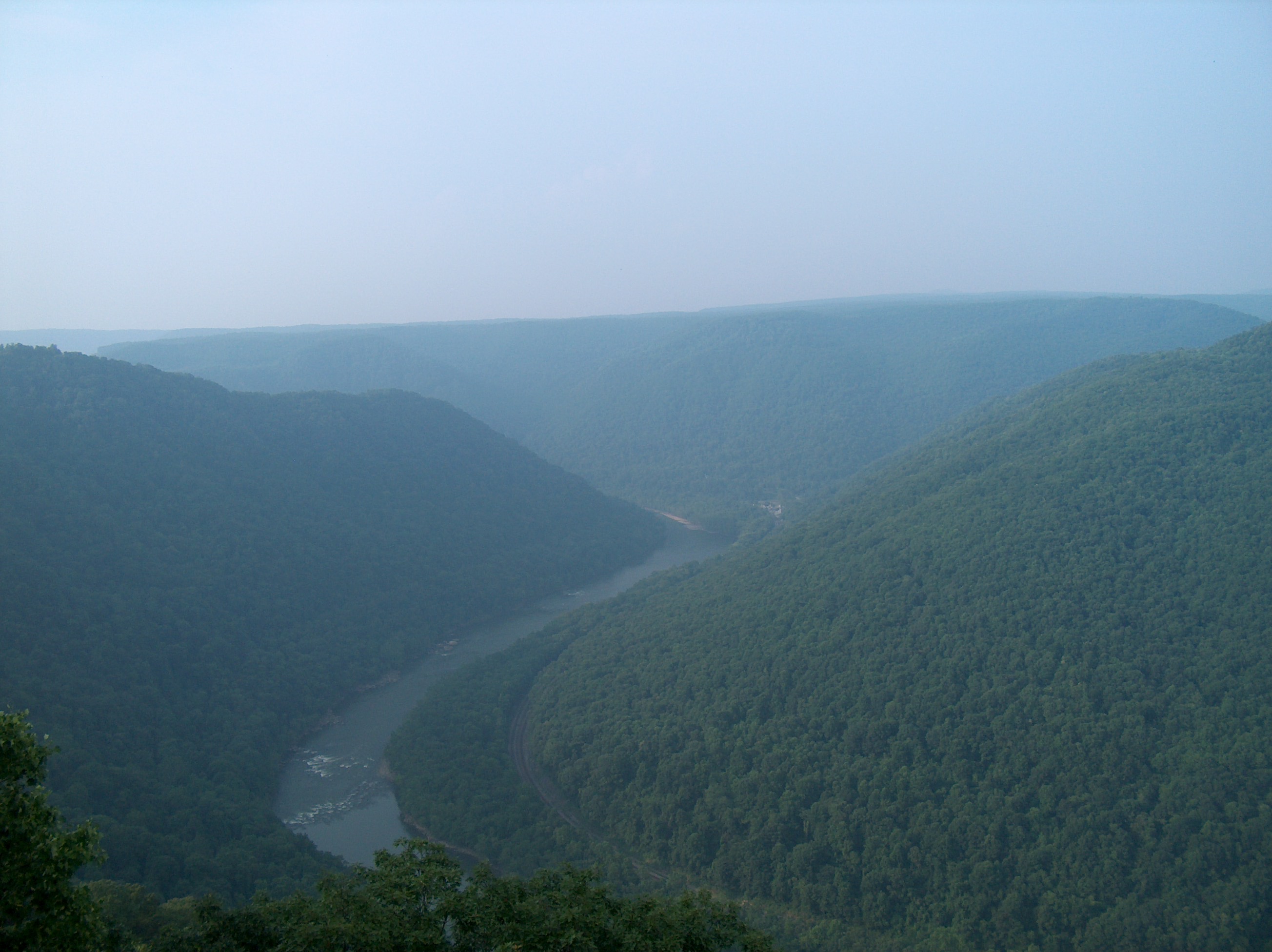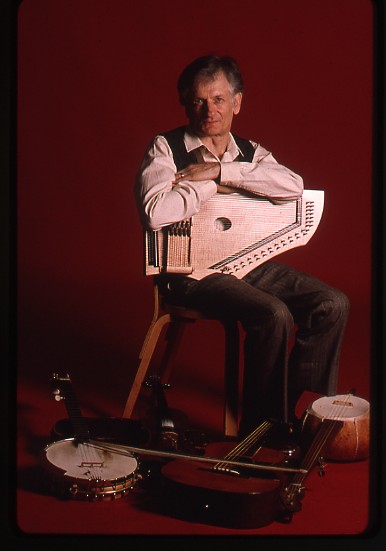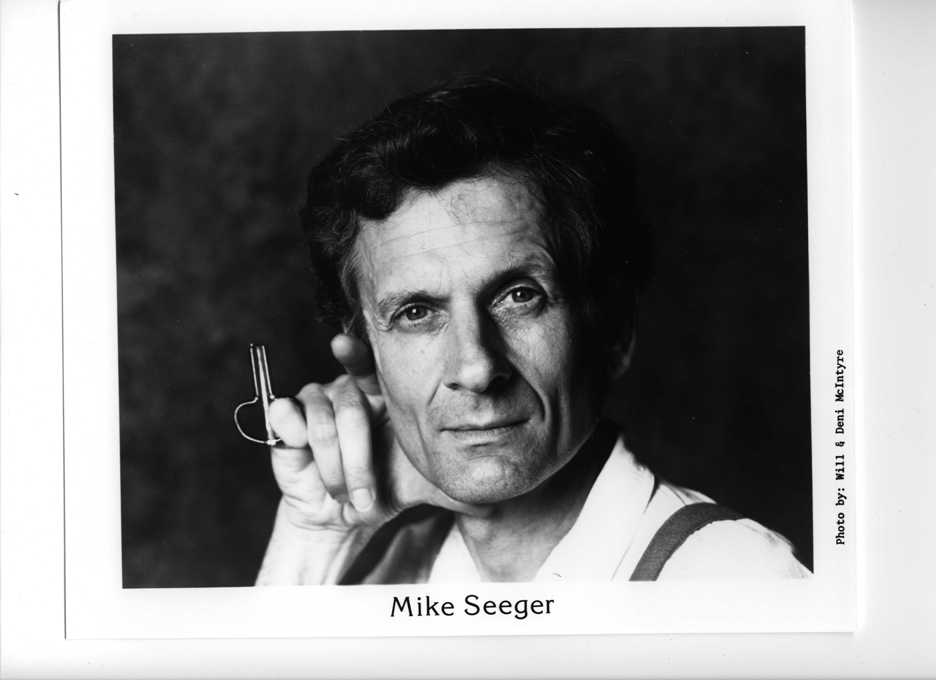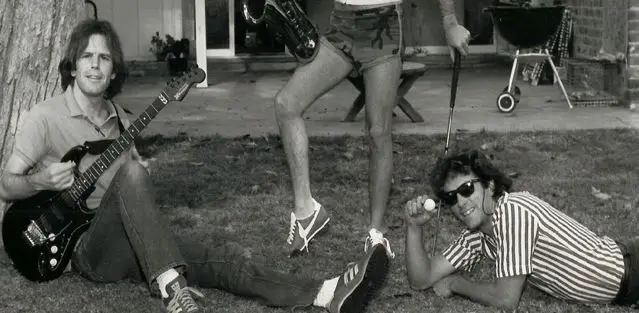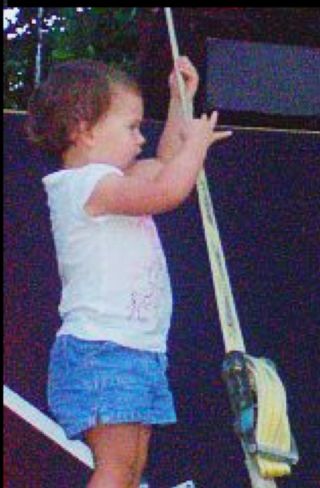Once upon a time, in a holler far, far away, a music revolution was born when the cries of Hasil "The Haze" Adkins, the last of ten Adkins children, first echoed across Appalachia. No one knows the exact date of the event. Though it was recorded in a family Bible, the Bible was lost.
At an early age, Hasil beat out insane rhythms on a milk can for hours. He soon discovered that, if he hung around long enough, the adults around him would get drunk enough to let him play their guitars. Hasil also played Bluegrass music with D. Ray White, a musician and mountain dancer who is the subject of the Hank Williams III song, "The Legend of D. Ray White" and father of Jesco White the infamous Boone County Dancing Outlaw.
D.Ray's remarkable dancing was recorded in a documentary "Talking Feet" by Mike Seeger and Ruth Pershing. His son, Jesco White, was recorded in two documentaries, one for PBS, "The Dancing Outlaw" and later "Jesco Goes to Hollywood". Jesco has since performed with Hank III on several occasions and is currently working on a new reality programming project for Johnny Knoxville's production company and MTV. Hasil Adkins was like an uncle to Jesco and his sister Mamie who literally grew up at his feet.
Adkins sent out hundreds of DIY tapes and records from his remote Boone County holler causing musical and cultural ripples that washed up on everybody's back porch from The Cramps to Hank III. Hasil Adkins was one of
a kind force of nature heard round the world that continues to echo with the timeless quality of true art.
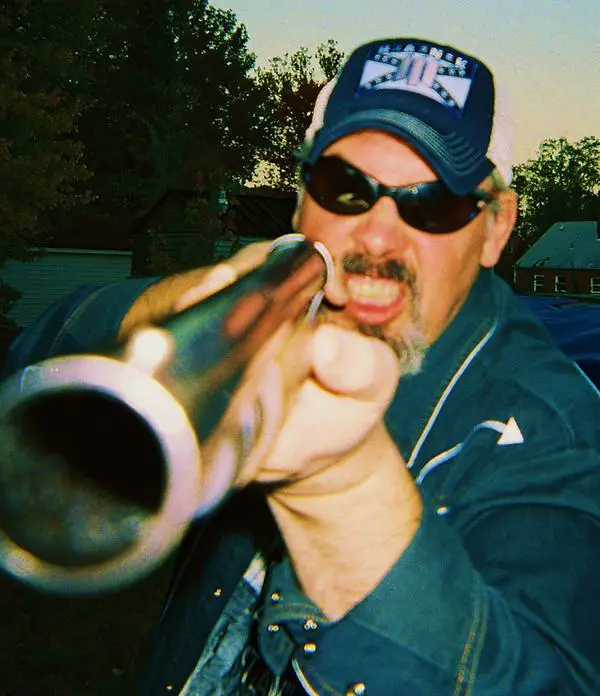 Through his music, Rockabilly was rounded out, (he's named, along with Elvis, as a "book-end" of the genre), the first, (and subsequent) rounds of Punk were heavily influenced and Psychobilly was born.. The odds of this happening would have been, for the average person, insurmountable.
Through his music, Rockabilly was rounded out, (he's named, along with Elvis, as a "book-end" of the genre), the first, (and subsequent) rounds of Punk were heavily influenced and Psychobilly was born.. The odds of this happening would have been, for the average person, insurmountable.
But Hasil Adkins was anything but an average person, as a new documentary about him by film-maker, musician and painter R.Smith reflects. I recently had the opportunity to speak with Smith about Hasil, their music and the film, "MY BLUE STAR: the life & hunchin' times of Hasil Haze Adkins". The preview just screened at the 2008 DEEP BLUES Music & Film Festival in St.Paul, Minnesota, where it won 1st place in the Previews & Trailers category. The MY BLUE STAR preview was also just shown August 21 at the prestigious and totally rockin' DON'T KNOCK THE ROCK MUSIC & FILM FESTIVAL in Hollywood, CA.
On Hasil's music, which combines a multitude of elements, Smith said, "Punk, Blues and Country all talk about real things, things that sometimes are ugly, painful bad subjects, good stuff too, but real stuff. It's that place out there on the edge that mainstream suburbia isn't comfortable with. It brings you to a kind of crossroads. When sections of music and culture bump into each other, that's where interesting things happen."
Hasil's songs ranged from sad, soulful country ballads to shrieking frenzies with eccentric titles like, "No More Hot Dogs", "Peanut Butter Rock & Roll", "Chicken Walk" and "Chicken Flop", in fact, Adkins recorded an entire album of songs about chicken "Poultry In Motion"and cited Col. Harlan Sanders as one of his primary influences in general along with Hank Williams, Little Richard and Jimmie Rodgers.
His performances were equally eccentric. For example, he became well known for a wild, sexually suggestive dance called "The Hunch" and for employing catchphrases like "I want your head on my wall", "Do the Chicken Walk", "Hunch that thing!" and "Boo Boo the Cat".
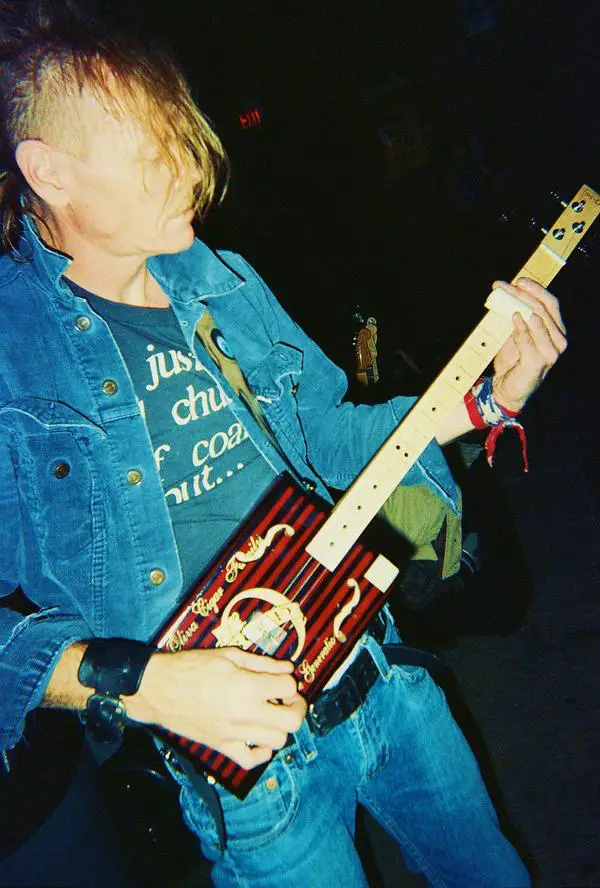 "Hasil truly lived his persona yet he would have been the first to say that nobody could sustain that over the top psychobilly mindset all the time." Smith said. "One interesting thing about him was that he contained a lot of duality. It wasn't so much contradiction as duality. There were a lot of ironic things about him that didn't make sense at first, but as you got to know him they came together. He didn't have much formal education but was a complete news junkie that read and studied politics all the time. He loved discussing politics and current events as well as hunchin' and the glories of fried chicken."
"Hasil truly lived his persona yet he would have been the first to say that nobody could sustain that over the top psychobilly mindset all the time." Smith said. "One interesting thing about him was that he contained a lot of duality. It wasn't so much contradiction as duality. There were a lot of ironic things about him that didn't make sense at first, but as you got to know him they came together. He didn't have much formal education but was a complete news junkie that read and studied politics all the time. He loved discussing politics and current events as well as hunchin' and the glories of fried chicken."
"Most people, if they know of him at all, are either familiar with the really wild music of his album "Out To Hunch" or they associate him with The Cramps, so that's a weird perception right there. But people who really appreciate him as a musician like the wild side but also know about his hardcore Country music, which is what he started out in the 50's as, a crazy hillbilly mountain jack. He even went through a period doing electric Chicago Blues.He was like a spong, he soaked up everything, even Gospel and Bluegrass too."
"In the '50s, he toured with Patsy Cline and the Collins Kids, played on Townhall Party and got hooked up with the guy who handled Ritchie Valens and was really close to getting a major record deal when his father died. When that happened, Haze went back to West Virginia. The story goes that the guy came back with a contract a half hour after Hasil's bus had left town.
As a child Hasil had heard one person singing on the radio and thought they were playing several instruments all by themselves so as a result he mastered a wide range of instruments and could play many of them simultaneously and began performing and recording as a One Man Band, partly out of his own necessity as much as his own unique vision.
"When he got back home he started doing his one man band thing.", Smith said, "He was living in obscurity in a remote holler. He didn't have a band but he didn't let that stop him. He didn't let anything stop him. For the next decade he kept doing records and demos on his own and sending them to people, everybody from Sam Phillips to Ed Sullivan to Richard Nixon. He mailed off hundreds of demos. The walls of his shack and trailer were literally papered with thousands of both fan letters and rejection letters. But it was all good to Haze."
"Another thing about Hasil was, he wasn't afraid to just stop on a dime and do something different. He would make up songs on the spot. I've seen him do it, music just flowed out of him."
One song of his I taped one night in Chapel Hill called, "She Left Early in the Morning" starts as a slow spooky Delta Blues then shifts gears into a jumpin' Boogie then shifts gears again into overdrive into a flat-out Punk Rock screamer all in the same song! He came offstage after he'd played it and I said,
"Hasil, that was amazing. What was that?"
"He said, "I made it up tonight. Did you record it?"
"I said yes and he said, "Good because I don't think I'll remember it tomorrow."
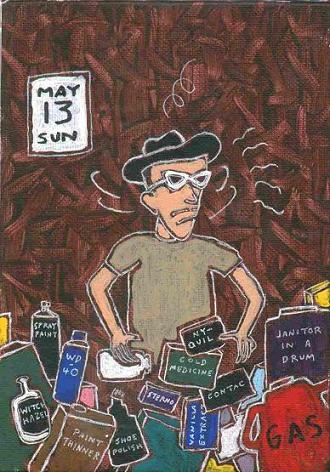 "He was fearless. When he went on stage he didn't give a damn if you liked him or not, he was there to party and ROCK the joint. He wanted you to have a good time but it wasn't all about ego or trying to be cool. He was just having a good time and raising hell.
"He was fearless. When he went on stage he didn't give a damn if you liked him or not, he was there to party and ROCK the joint. He wanted you to have a good time but it wasn't all about ego or trying to be cool. He was just having a good time and raising hell.
"He taught me that, most of the time, you don't have to be best musician or greatest singer. Most people drinking in a bar are drinking to get their mins off other stuff and just wanna have a good time and if you do too, most of the time they'll help you! Coming off with a rock star attitude or some deep message, the whole, "Be quiet! Listen!" thing, people have always had a short span for that and these days, people's attention spans are shorter than ever.
As for Smith's own music, it, somewhat eerily, all seems to have started 20 years ago.
"In '88, I was sitting at a friends house listening to the blues and we started talking about going down to Louisiana and getting a "mojo". Two hours later, we were in a car headed South. They say the Lord looks out for drunks and fools and we were both of those things.
"It just so happened that the day we rolled into New Orleans was the first day of the 1988 Jazz and Heritage Festival and the first person we ran into was a real hoodoo woman named Priestess Ava K. Jones, who said she was the Great-great-great Grand-daughter of Marie Laveau. I don't know if that true but she was the only person listed under Voodoo in the New Orleans phone book, for real."
"We met her at her Voodoo shop in the French Quarter, like, where else would you look fir a mojo, right? ... and she asked what she could do for me and I said, "Priestess, I'd like to get a Mojo.
"She said, "What kind of mojo you want? To help with women? gambling? love?"
"No, I said, "I want to be a musician. I'd like Mojo to help my inner voice come out through my music."
"She said, "Oh, that's a wonderful, unselfish thing to ask for, I'm going to make you special Mojo."
"So she put some things in a bag, said prayers over it and told me to keep it in my pocket or a special place and to never open it. All I can say is, I don't know if it worked or not but it seems to have.
"Then she said, "I done all I can do chile'. You need to go to the crossroads now."
"I said, "You're making fun, you're pullin' my leg.
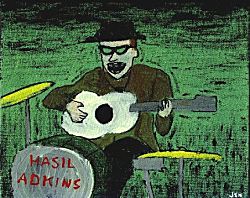 "She said, "No, honey. I ain't gonna tell you what to do when you get there but take your guitar."
"She said, "No, honey. I ain't gonna tell you what to do when you get there but take your guitar."
"So, we went up Highway 61 to Clarksdale, Mississippi to Jim O'Neil's shop Stackhouse Records and the had just opened up the Delta Blues Museum there too, and we went to see Jim and said, "We were in New Orleans and a voodoo priestess told us to come to the crossroads."
"Jim said, "Well, you can do that, but I recommend you go oiver to Wade Walton's Jukejoint Barbershop and get yourself a guitar lesson and a haircut instead."
"So that's exactly what we did, we walked in and everything got real quiet. We said, "Hi Wade, Jim O'Neill just sent us over here to get a guitar lesson."
"He sent us in the back and told us to get a beer and wait till he was done cutting another customer's hair. then he came back and said, "Y'all want to learn to play the blues -where's your guitar?"
"I went and got my box and he starts playing, then reaches in a drawer, takes out a pair of wirecutters and cuts off my top string puts it in open G tuning and says, "Take this home, play with it as much as you play with yourself and when it starts feeling ½ as good you'll be a guitar player."
"So that was my introduction to the Blues and to guitar playing and I've been wankin off ever since! Hahaha"
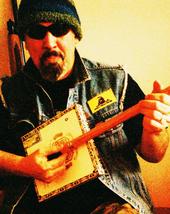 Possibly in part from that, but largely due to Hasil, Smith is now a performer too after many years of playing at home or "woodshedding it" as he calls it and has started taking to the stage with his own one man band incarnation CuzN Wildweed.
Possibly in part from that, but largely due to Hasil, Smith is now a performer too after many years of playing at home or "woodshedding it" as he calls it and has started taking to the stage with his own one man band incarnation CuzN Wildweed.
"I wouldn't be playing music if not for Hasil Adkins. I can't play like Hasil but he taught me about abandon and giving yourself over to the muse and the beat and not caring if anybody else likes it as long as YOU like it. That's what it's all about, just having fun and rockin' out!
"If you were friends with Hasil, he was gonna get you playin' music. It didn't matter if you played it or not or wanted to play it. He was gonna get you to play."
"People play music for different reasons. Some people play because they have natural ability, some to get attention or girls, some have some weird pain or message they want to convey or express. Others just play because it feels good. In my case, I never considered myself as having an innate talent, I just like to rock because it feels good!"
Wildweed, who kicked off the recent 2008 DEEP BLUES Music & Film Festival both as a musician and filmmaker has opened for Joe Buck from Hank III's Damn Band, The Pack A.D., Dexter Romweber, Vapor Rhinos, Memphis Johnny Lowebow and a whole slew of new gen Punk Blues and Heavy Metal headbangers. Cuz says a YouTube video from JESCOFEST that ignited Wildweed fever in the cult underground but that he often gets mixed reactions depending on the venue and crowd, and went on to describe being sometimes well received and sometimes literally unplugged. But, that seems to be part of his point.
"Picasso often said The ugly may become beautiful, but the pretty never." That's kinda where I'm coming from. Some of what I do is ugly, but sometimes when it works there's beauty there too."
For example, the night he incorporated a two string electric broomstick into his act,
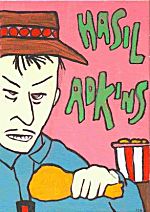 "I'd played it there before and done some pretty weird shit and never had a problem. But one night I pulled it out and dared the audience for me to plug it in. I did a song I made up on spot and halfway through the owner came running up screaming that I had to either turn it down or he was pulling the plug. After the set he said, "Cuz. you're welcome back here, but I don't want to ever see that thing in my bar again!"
"I'd played it there before and done some pretty weird shit and never had a problem. But one night I pulled it out and dared the audience for me to plug it in. I did a song I made up on spot and halfway through the owner came running up screaming that I had to either turn it down or he was pulling the plug. After the set he said, "Cuz. you're welcome back here, but I don't want to ever see that thing in my bar again!"
"But I make no apologies or excuses, I say if you book the devil then be prepared to raise some hell, dammit! I love feedback, I love strange aural textures, I create sonic gutpiles that are interpreted not just with your ears but hopefully with a little bit of your soul too. Sometimes that's painful. On a good night, when it's working the way it's supposed to, it's like really hard sex where it feels really good but kinda hurts a little too. On an off night when it's not, it's like bad carpet burns. That's the risk of reaching for Art, you gotta be willing to dare to suck. And that's my greatest strength, I have no fear of failure. None!"
The same can be said of Hasil's music, he did things his own way, hunched to his own beat and had no fear of rejection whatsoever. In his lifetime, he composed something like 7,000 songs and released 21 albums and 16 singles. At the time of his death he was about to record with Hank III for the iconic double CD "STRAIGHT TO HELL" that Jesco White performs on. Hank III had visited Boone County to record with Jesco and was due to go back for sessions with Hasil when he passed.
paintings by Jeffrey Holland





